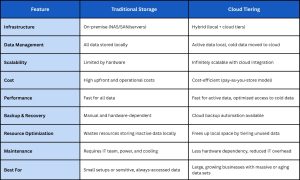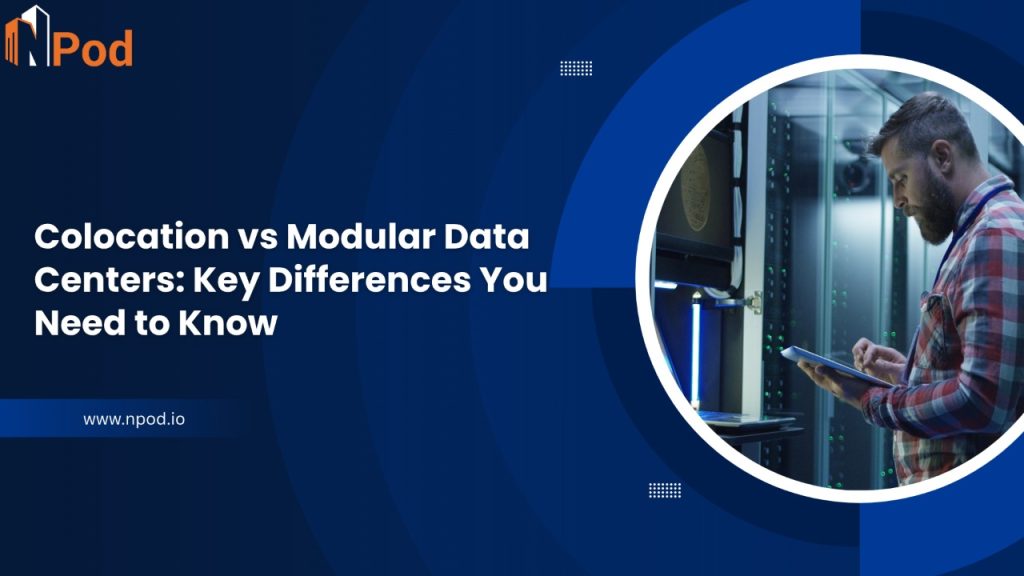The infrastructure that supports data has become the foundation for modern enterprises in a world where data is king. Selecting the appropriate data center solution can have a direct impact on your performance, expenses, and scalability, regardless of how big your business is or how quickly it is expanding.
This is where colocation and modular data centers, the two most popular types, come into play.
But what is the difference between colocation and modular data centers? Which one best meets your company’s needs?
We’ll explain everything in simple language, compare the advantages of modular data centers and colocation hosting, and assist you in making the best decision in this article. Let’s get started.
What is a Colocation Data Center?
Businesses can rent space in a colocation data center, sometimes known as a “colo,” to host their servers and IT equipment. Power, cooling, bandwidth, physical security, and redundant connectivity are among the critical infrastructure services that the company provides. You still have control over the software and hardware, too.
Consider it your servers’ high-tech hotel; you bring your equipment, and the establishment makes sure it’s powered, connected, and secure.
Key Features of Colocation Hosting:
- Rent is paid for the actual space (rack, cage, or cabinet).
- The provider controls network redundancy, cooling, and power.
- Perfect for companies that wish to control hardware without making infrastructure investments.
What is a Modular Data Center?
A pre-engineered, container-based, or prefabricated facility that offers all the features of a traditional data center in a portable, expandable style is called a modular data center.
These can be deployed in days rather than months and are frequently supplied to a customer’s location. Remote setup, edge deployment, and rapid scalability are all made possible by modular designs.
Key Features of Modular Data Centers:
- All-in-one architecture, which includes pre-installed cabling, electricity, cooling, and fire protection.
- Quick deployment (available in a matter of days or weeks).
- Both are very scalable and portable.
- Perfect for high-growth, remote, or disaster-recovery settings.
Benefits of Colocation Hosting
For businesses that wish to maintain hardware control without investing in the high infrastructure expenses associated with constructing a data center, colocation remains a popular option. This is the reason:
- Absolute Control: You have control over your operating system, hardware, and settings.
- High Reliability: Get internet, HVAC, and power backup.
- Improved security: physical security that encompasses fire suppression, access control, and surveillance.
- Cost-efficient: Cheaper upfront than building a data center.
- Connectivity: You are able to access multiple ISPs due to carrier-neutral facilities.
Benefits of Modular Data Centers
Due to their mobility and deployment speed, modular data centers are gaining increased popularity. Some of the reasons why modular data centers are a good idea if your business requires fast scaling or is located in remote regions are:
- Plug-and-play: Fully integrated networking, cooling, and power.
- Compact & Adaptable: Simple to install in remote or disaster-struck sites.
- Quick Scalability: Expand as your requirements grow by adding modules.
- Energy-efficient: Built with advanced circulation and cooling infrastructures.
- Faster Time-to-Market: Launch in a matter of days.
What is the difference between colocation and modular data centers?

Which Is Suitable for Your Business
Your business needs, technical ability, and growth aspirations will decide the answer.
Choose colocation if:
- IT hardware is already under your management.
- Your staff desires complete control of the infrastructure.
- You wish to save money without constructing a facility.
- You maintain a consistent workload that is close to major metropolitan areas.
Choose Modular Data Center if:
- You need a rapid-to-deploy solution.
- You wish to facilitate edge computing or scale speedily.
- You need disaster recovery options or are in distant locations.
- You seek high-performance, independent infrastructure.
NetForChoice—Powering Both Colocation & Modular Data Centers
We at NetForChoice are aware that every company is unique. In order to meet your infrastructure demands precisely, we provide both colocation hosting and modular data center (NPOD) options.
Colocation services from NetForChoice:
- Tier-4 data centers in the UAE and India.
- Physical security and 24/7 surveillance.
- High-speed, carrier-neutral connectivity.
- Rack customization and support for remote hands.
NetForChoice NPOD – Modular Data Center:
- Pre-engineered modular units that are delivered to your location.
- Power, cooling, fire suppression, and monitoring are all completely installed.
- Scalable, edge-ready, and at par with industry standards.
- Ideal for government, BFSI, IT, telecom, and startups.
NetForChoice gives you the performance, flexibility, and peace of mind you need to be future-ready, no matter how fast you’re growing or expanding to new markets.
FAQs
- What is the main difference between modular data centers and colocation?
Modular data centers are pre-built, movable modules that provide a full infrastructure setup, whereas colocation involves renting space in an existing data center to host your hardware.
- Which is more scalable, modular or colocation?
While colocation depends on the facility’s available space, modular data centers are typically more scalable because you can add complete units.
- Is colocation less expensive than modular?
Because of the pre-integrated infrastructure, modular systems are more expensive up front, but they can save money on operating costs over time.
- What types of businesses prefer colocation?
For more control and less capital expenditure, companies with internal IT departments and pre-existing infrastructure tend to favor colocation.
- Is NetForChoice a worldwide provider of services?
Yes, NetForChoice offers colocation and modular data center solutions for worldwide deployment, and it runs data centers in India and the UAE.
